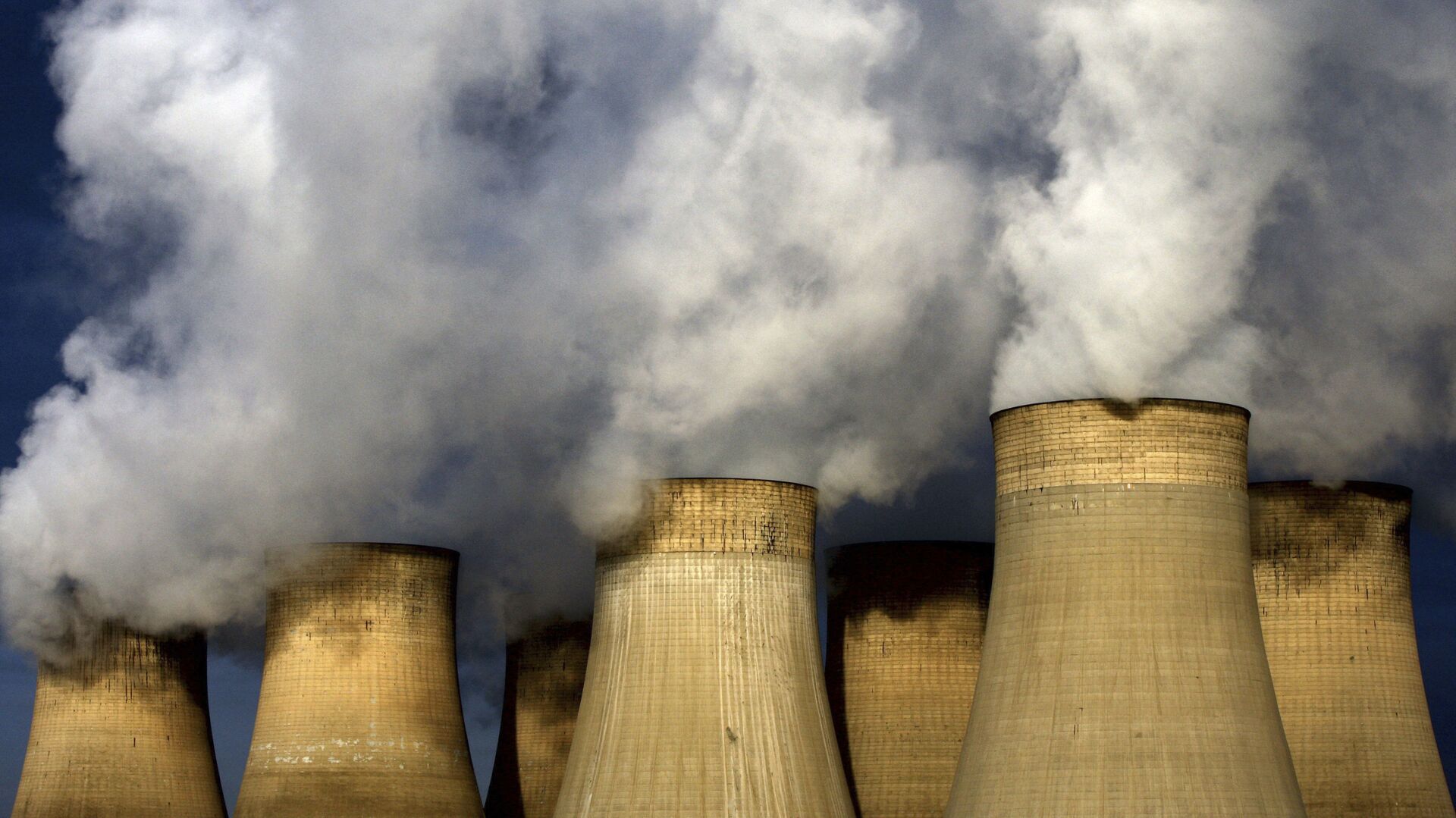https://sputnikglobe.com/20221109/eus-increased-coal-usage-causes-higher-co2-emissions-in-short-term---climate-adviser-1103954205.html
EU's Increased Coal Usage Causes Higher CO2 Emissions in Short Term - Climate Adviser
EU's Increased Coal Usage Causes Higher CO2 Emissions in Short Term - Climate Adviser
Sputnik International
SHARM EL SHEIKH (Sputnik) - CO2 emissions in the European Union will increase due to higher consumption of coal in connection with the phase-out of Russian... 09.11.2022, Sputnik International
2022-11-09T20:44+0000
2022-11-09T20:44+0000
2022-11-09T20:42+0000
world
coal
european union (eu)
co2 emissions
fossil fuels
power plants
energy crisis
https://cdn1.img.sputnikglobe.com/img/07e5/02/05/1081988146_0:321:3071:2048_1920x0_80_0_0_62a43e23c19a7f422ecba5339cddd4b5.jpg
Some EU countries, including Germany and France, have been restarting their coal-fired power plants mothballed for climate protection reasons in order to deal with the energy crisis. This measure has raised concerns among climate activists since it contradicts the European Green Deal, adopted in 2019, which aims to cut carbon emissions and build a resource-efficient and eco-friendly economy."We are now combining the concern about reaching the net zero as quickly as possible with the concern about the energy security as well," Jacob Werksman, principal adviser for International Aspects of EU Climate Policy, said. According to Werksman, the EU's ambitions to fight climate change have only increased as a result of its desire to abandon Russian fossil fuels.Since 2021, energy prices in EU countries have been surging as part of a global trend. After the beginning of Russia's military operation in Ukraine in February 2022 and the adoption of several packages of sanctions against Moscow by the EU, energy prices have accelerated the growth, placing energy security high both on the global and national agenda and pushing many European governments to resort to contingency measures.The EU has been recently looking for alternatives to Russian natural gas as it has pledged to end dependence on energy supplies from Russia.
Sputnik International
feedback@sputniknews.com
+74956456601
MIA „Rosiya Segodnya“
2022
Sputnik International
feedback@sputniknews.com
+74956456601
MIA „Rosiya Segodnya“
News
en_EN
Sputnik International
feedback@sputniknews.com
+74956456601
MIA „Rosiya Segodnya“
Sputnik International
feedback@sputniknews.com
+74956456601
MIA „Rosiya Segodnya“
coal, european union (eu), co2 emissions, fossil fuels, power plants, energy crisis
coal, european union (eu), co2 emissions, fossil fuels, power plants, energy crisis
EU's Increased Coal Usage Causes Higher CO2 Emissions in Short Term - Climate Adviser
SHARM EL SHEIKH (Sputnik) - CO2 emissions in the European Union will increase due to higher consumption of coal in connection with the phase-out of Russian gas, but in the long term, EU countries intend to make up for this by sharply reducing the use of fossil fuels, an expert told Sputnik on Wednesday.
Some EU countries, including Germany and France, have been restarting their coal-fired power plants mothballed for climate protection reasons in order to deal with the energy crisis.
This measure has raised concerns among climate activists since it contradicts the European Green Deal, adopted in 2019, which aims to cut carbon emissions and build a resource-efficient and eco-friendly economy.
"We are now combining the concern about reaching the net zero as quickly as possible with the concern about the energy security as well," Jacob Werksman, principal adviser for International Aspects of EU Climate Policy, said.
"So, that, combined with the fact that our domestic policies are based on a legal binding cap on our emissions, means that not only we are going to be more ambitious in the future, but any rise in the use of, for example, coal, in the near term will be made up for by steeper reductions over the longer term."
According to Werksman, the EU's ambitions to fight climate change have only increased as a result of its desire to abandon Russian fossil fuels.
Since 2021, energy prices in EU countries have been surging as part of a global trend. After the beginning of Russia's military operation in Ukraine in February 2022 and the adoption of several packages of sanctions against Moscow by the EU, energy prices have accelerated the growth, placing energy security high both on the global and national agenda and pushing many European governments to resort to contingency measures.
The EU has been recently looking for alternatives to Russian natural gas as it has pledged to end dependence on energy supplies from Russia.




